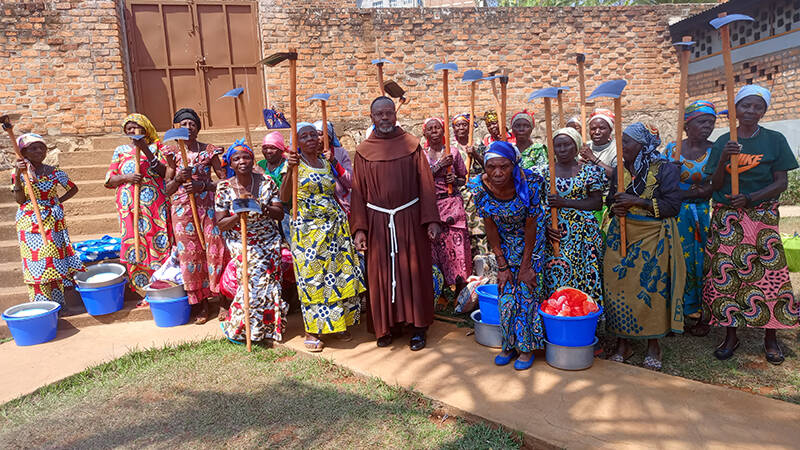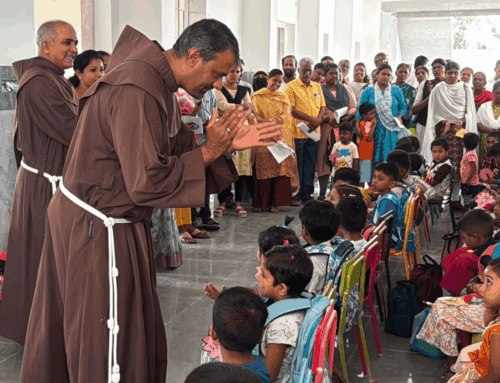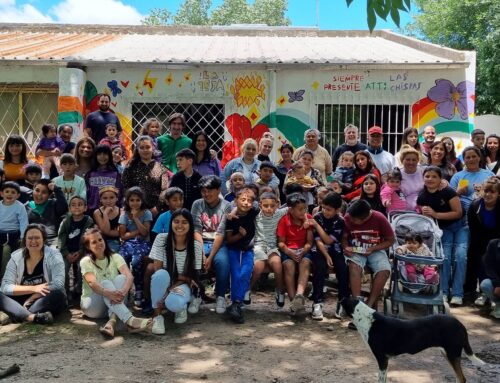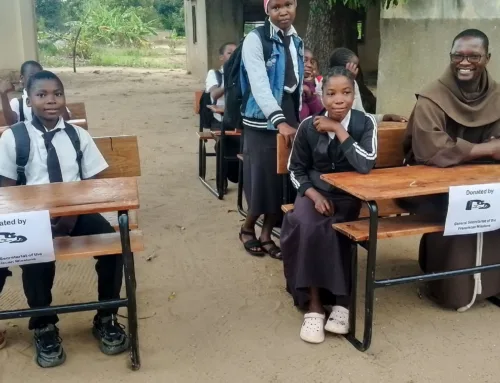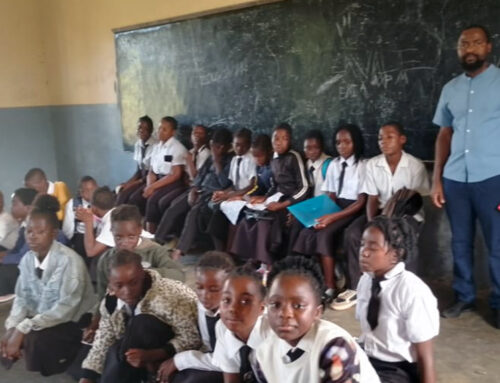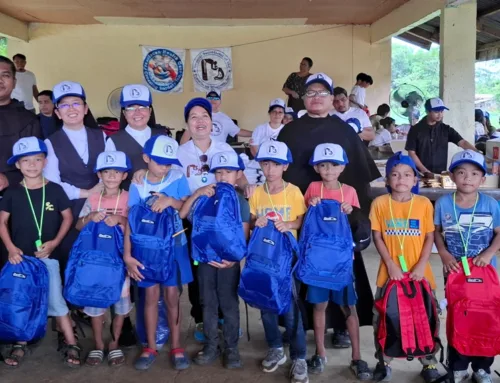In the Democratic Republic of Congo, and particularly in Nyantende, widows are among the most vulnerable members of society. Without formal social safety nets, they often rely on charity to survive. Many are physically frail and socially invisible, left to suffer in silence.
The Franciscan brothers at the Nyantende postulate saw what others overlooked. They recognized both a humanitarian and spiritual call to care for these forgotten women.
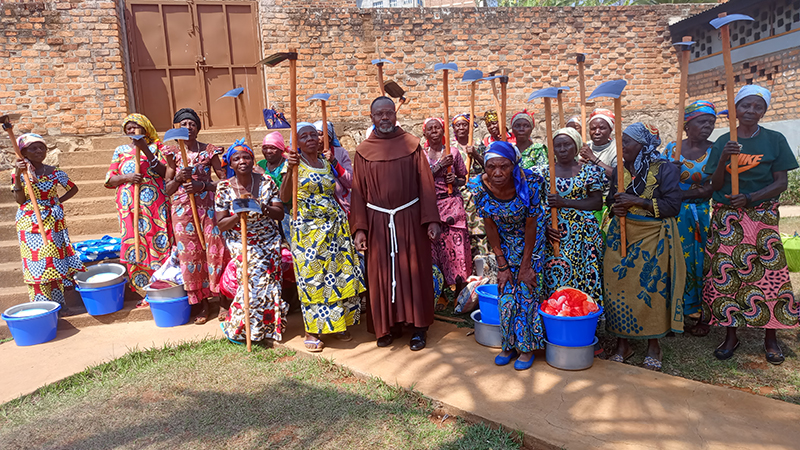
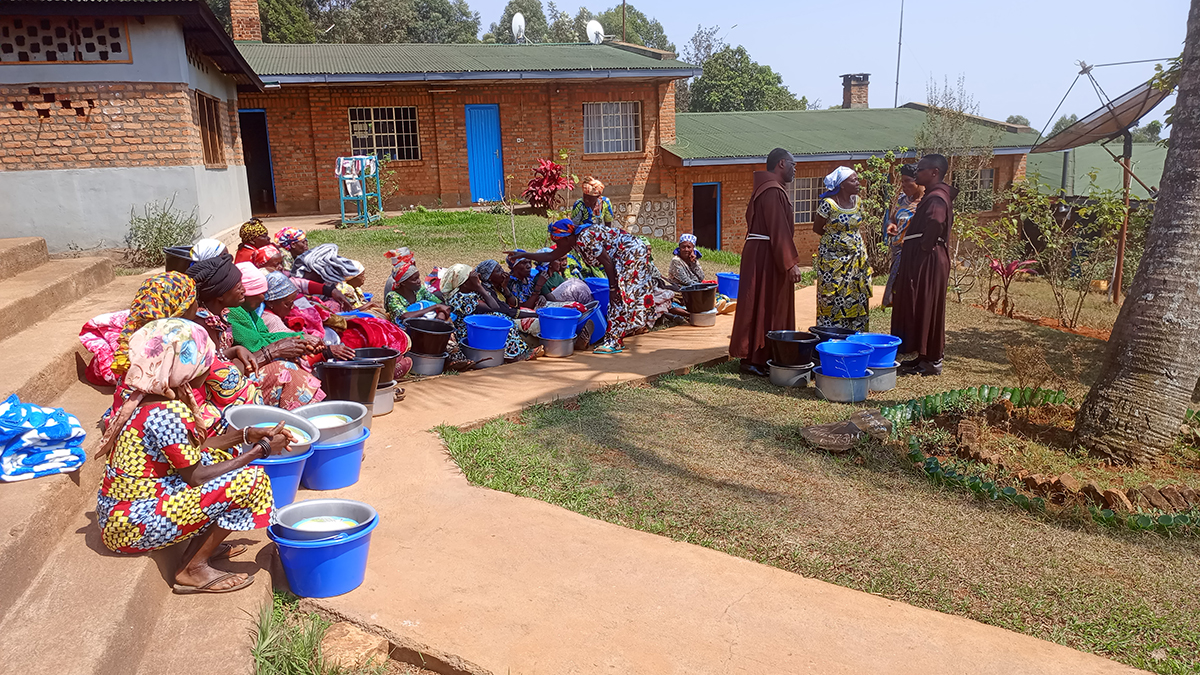
So they requested aid to provide sustained, life-enhancing support—restoring their dignity, meeting their basic needs, improving their living conditions, and offering them a peaceful and supported end of life.
The Abandoned are Remembered
Thanks to $13,000 in donations, the friars began the first phase of a project that now nourishes 45 widows.
- First, the friars distributed food to every widow in the program: corn flour, cassava flour, rice, beans, oil, and salt. Enough to eat.
- Next came kitchen kits—simple things, like pots and plates and blankets.
- Then the friars gave out seeds—bean, pea, and corn—and hoes for tending to small gardens.
- Ten women received $100 each to start a small business—selling food, or soap, or something they’d dreamed of offering to their neighbors. It may not sound like much, but in Nyantende, $100 can become the difference between hunger and hope.
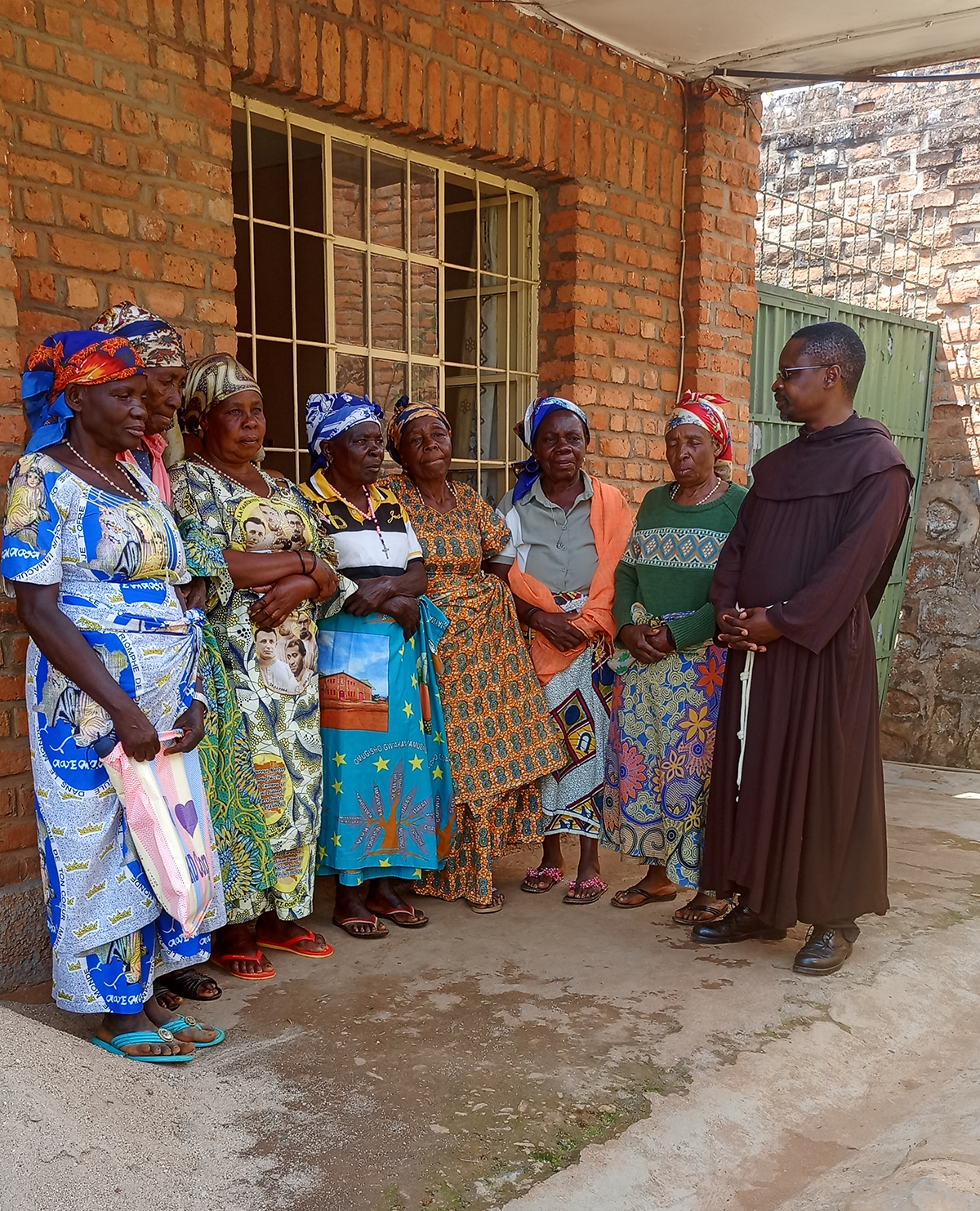
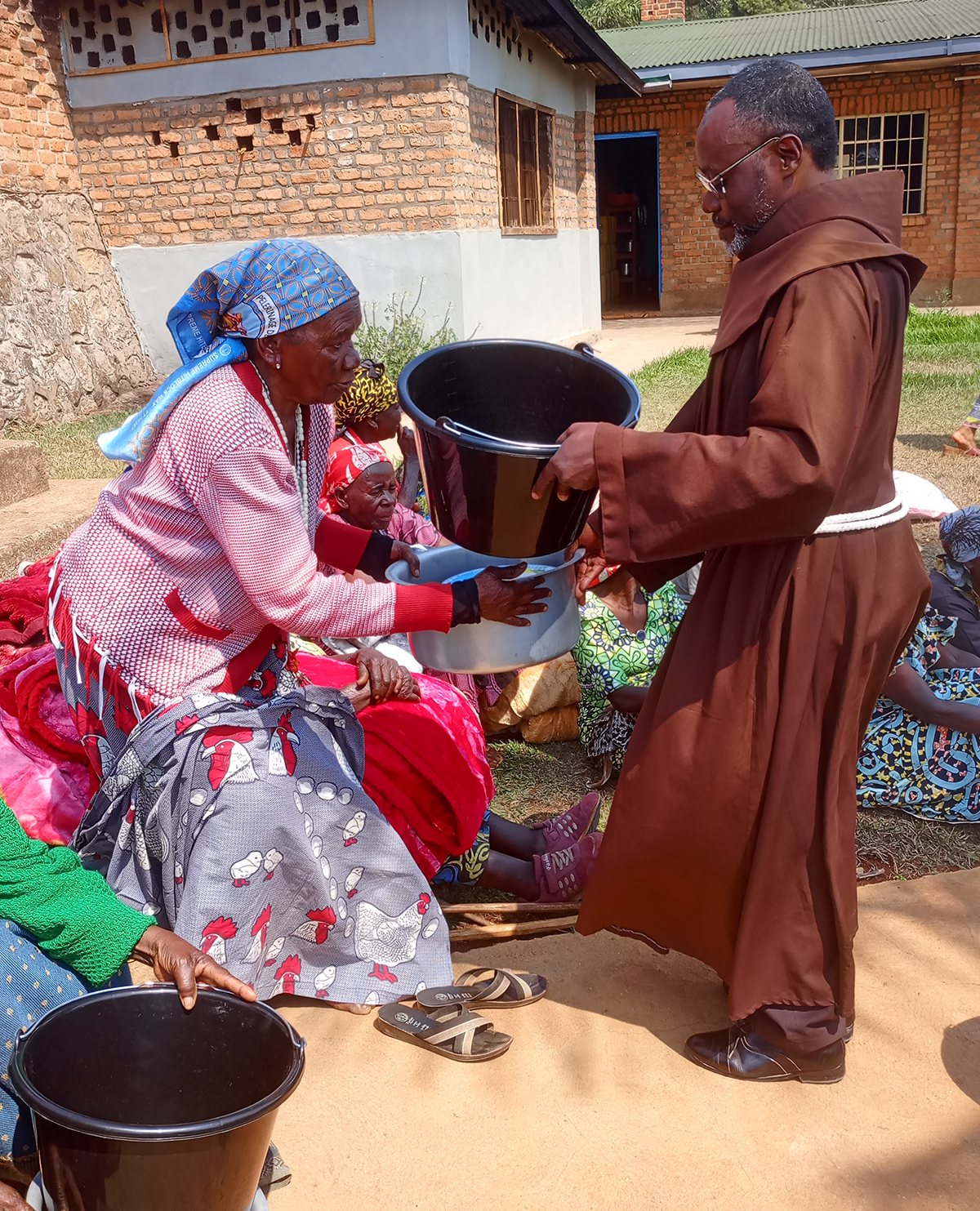
“Each time these widows receive help, it’s a joy,” one friar shared.
The widows continually thank the Minister General and the Franciscans for remembering them.
But the popularity of these programs also increases the number of elderly women who demand to be counted among the others. As a result, the friars have adapted—offering help only to women aged 70 and older, inviting only verified participants to receive goods so as not to overwhelm the program.
The Work Continues
This project is open-ended because the need is ongoing. But so is the hope.
And that hope is made possible by the generosity of our steadfast friends and donors.
Thank you for seeing the widows in Nyantende, for remembering what the world has tried to forget.

